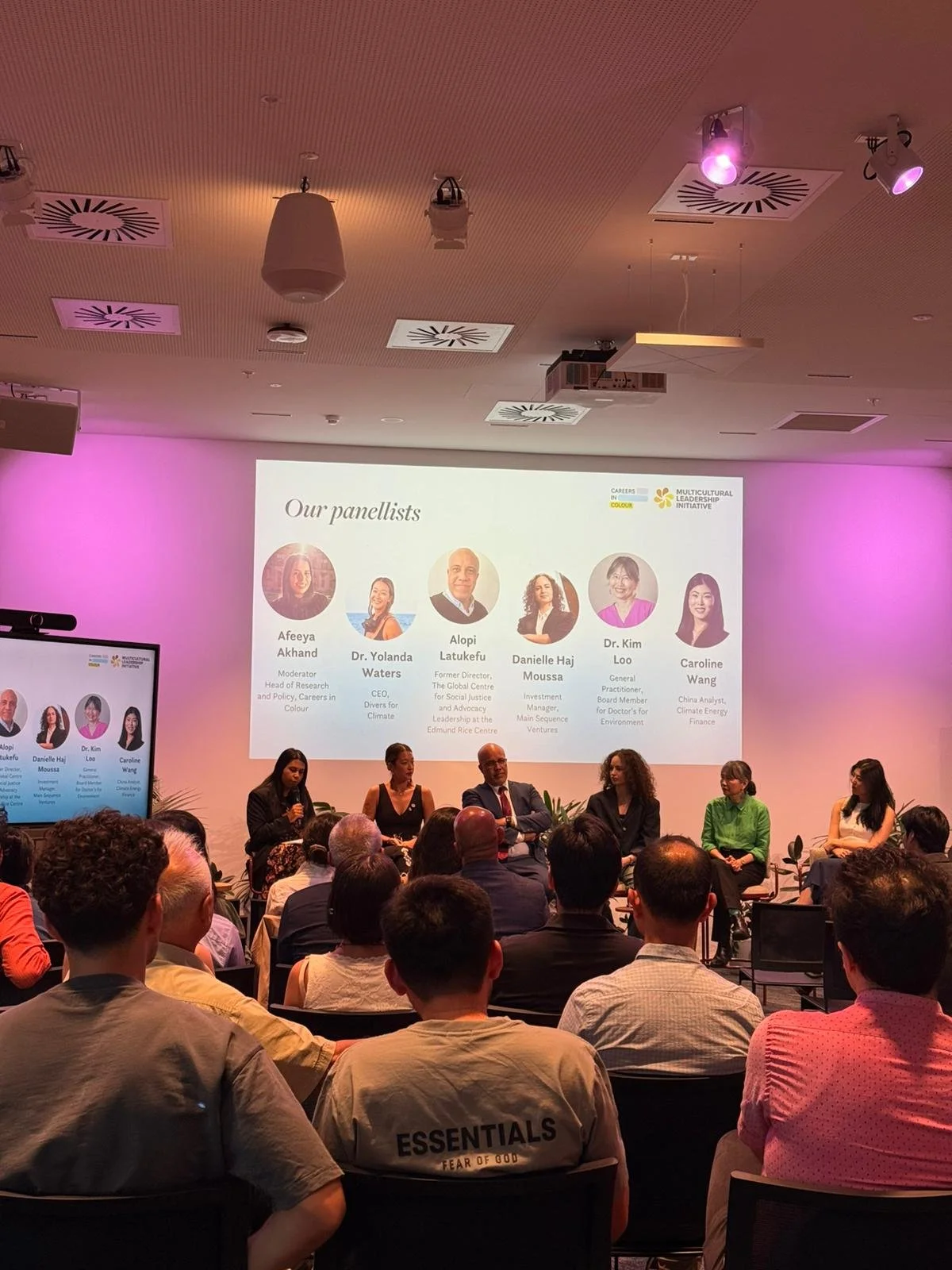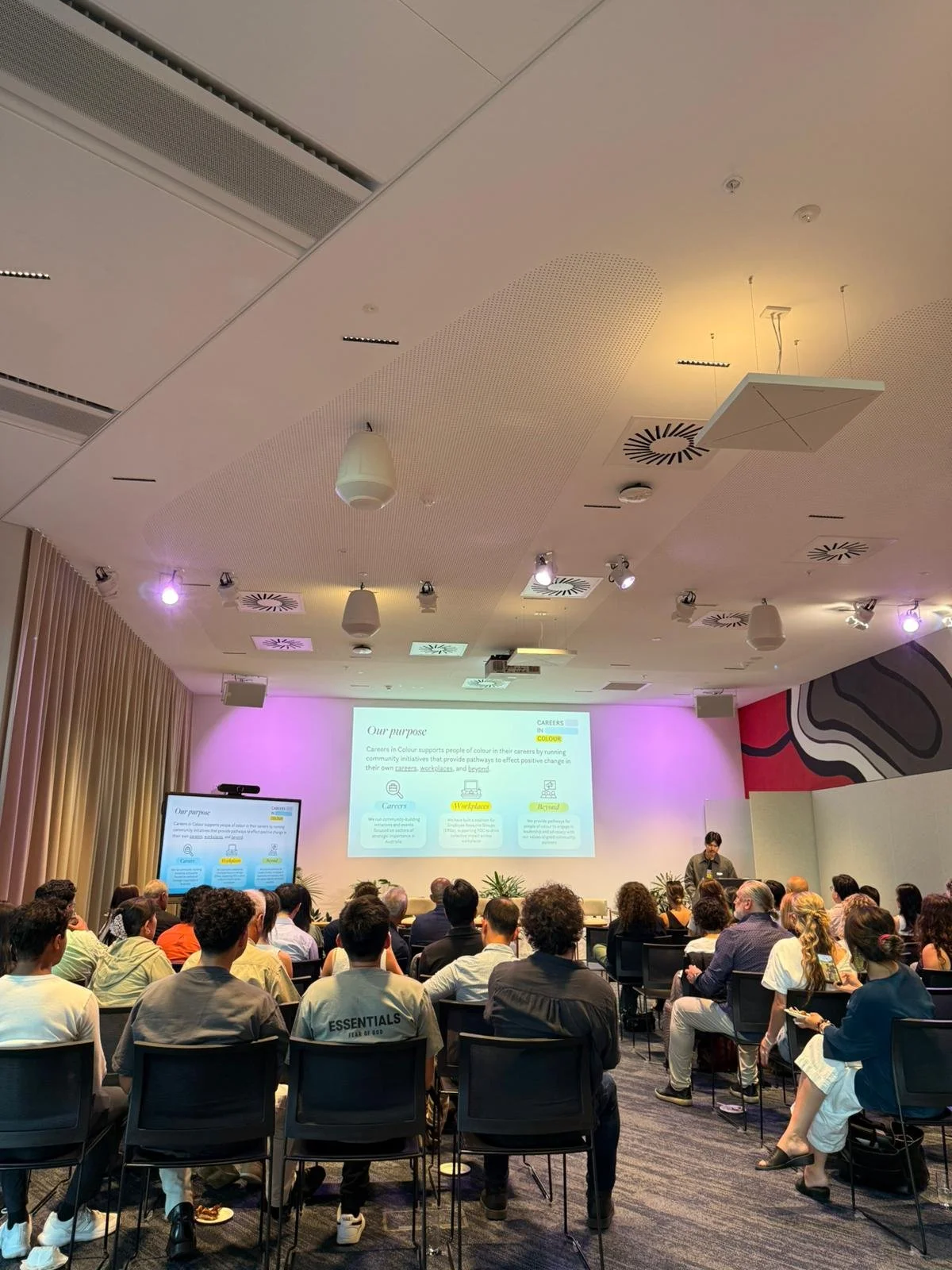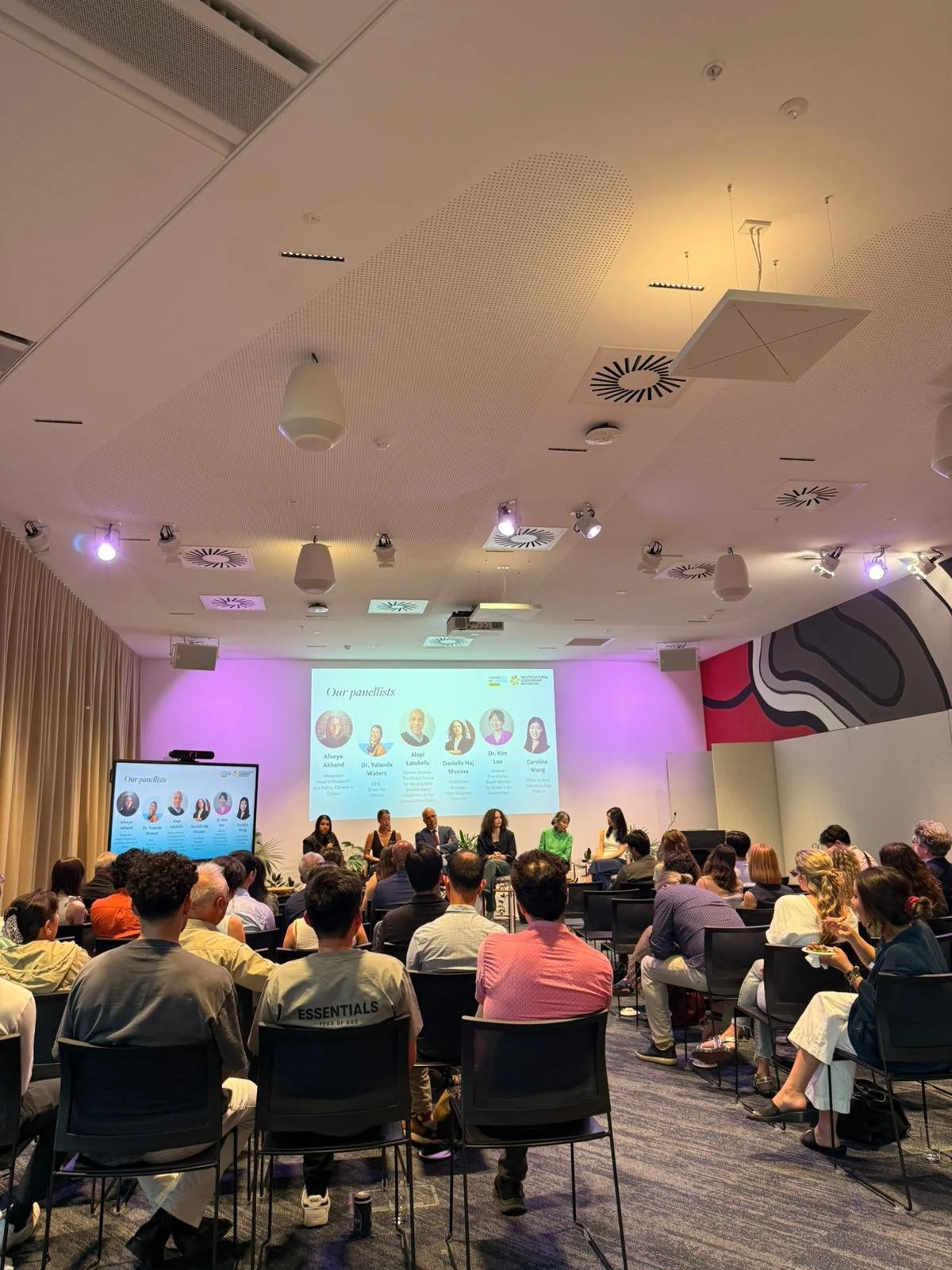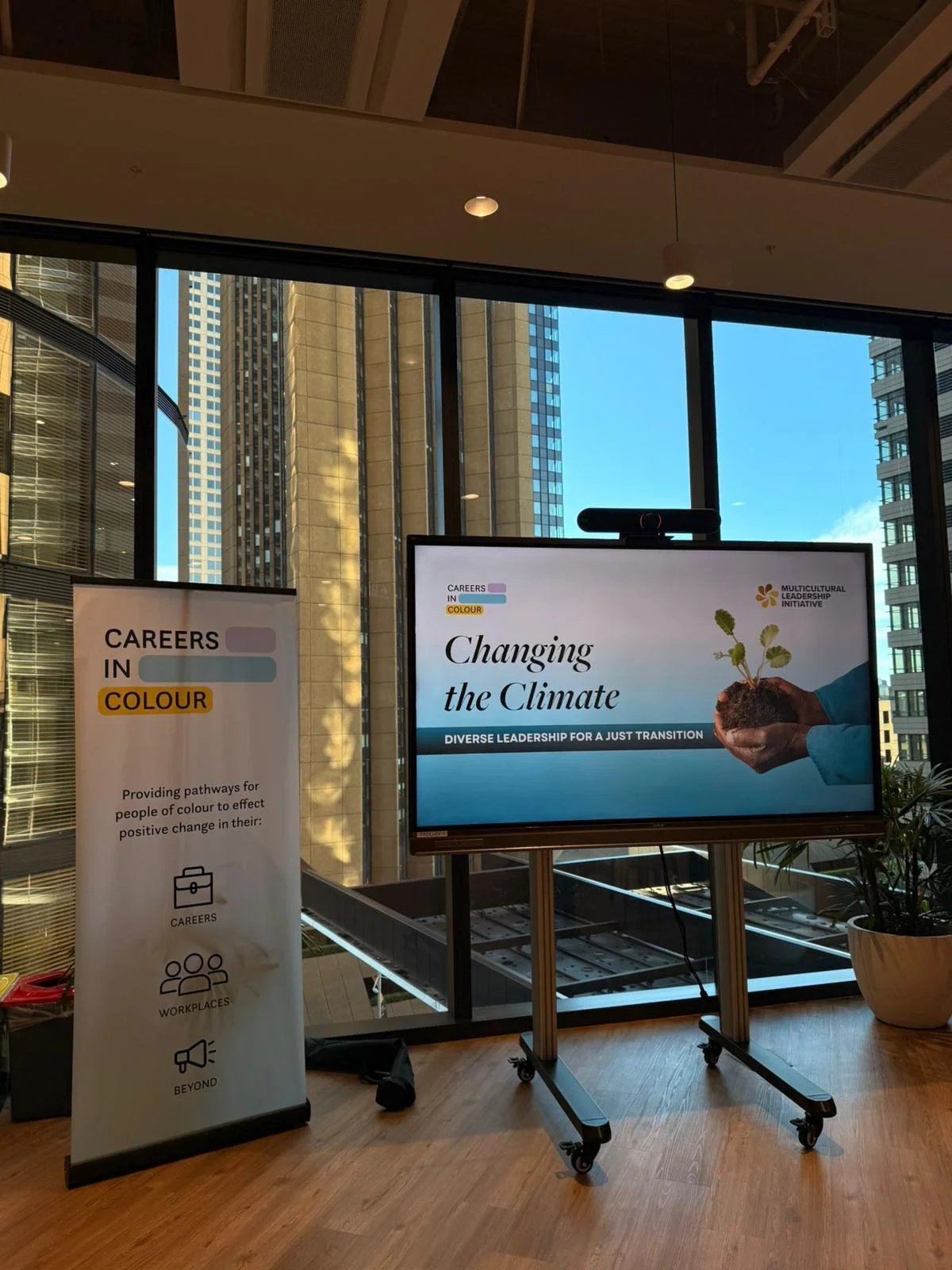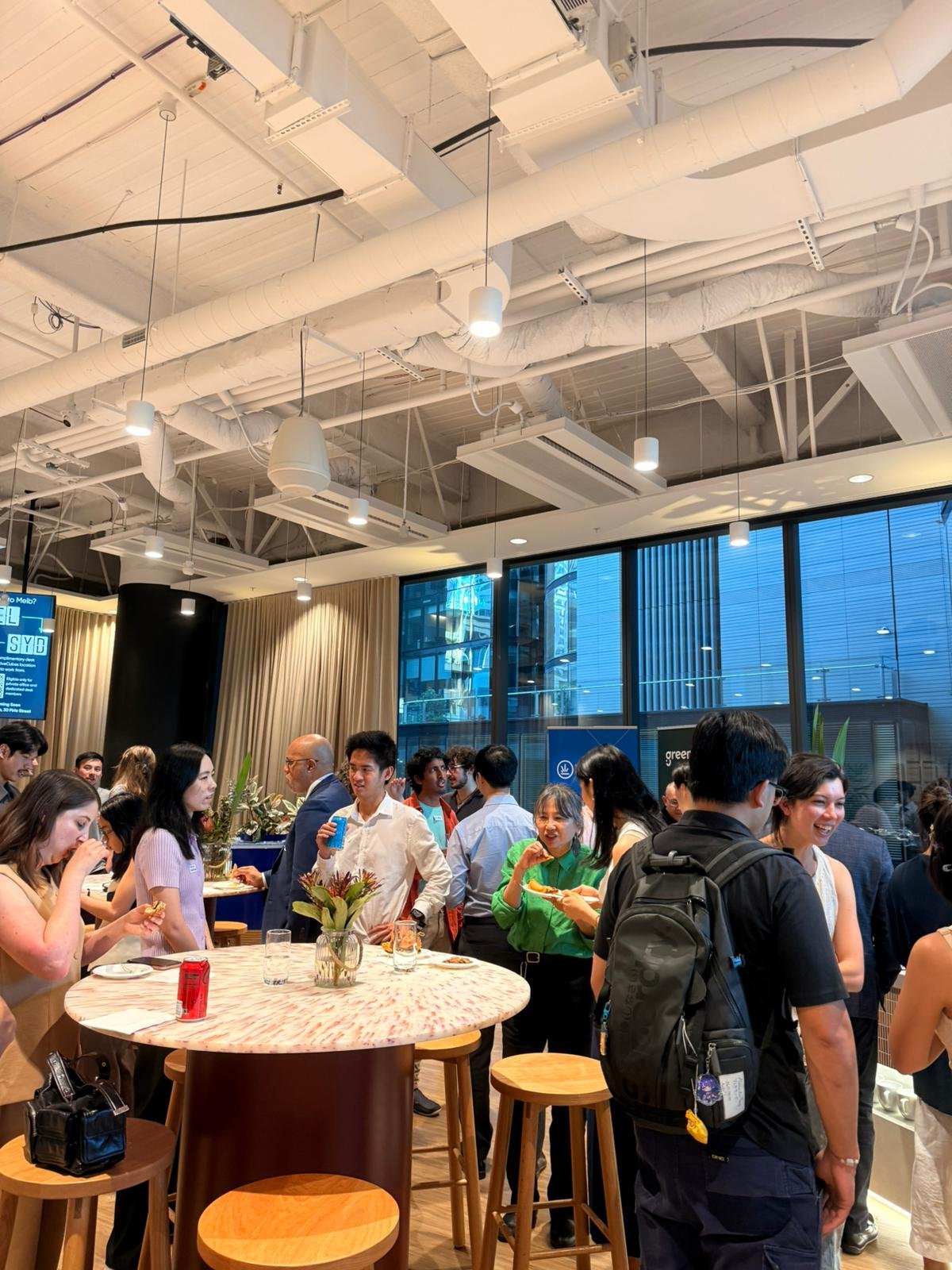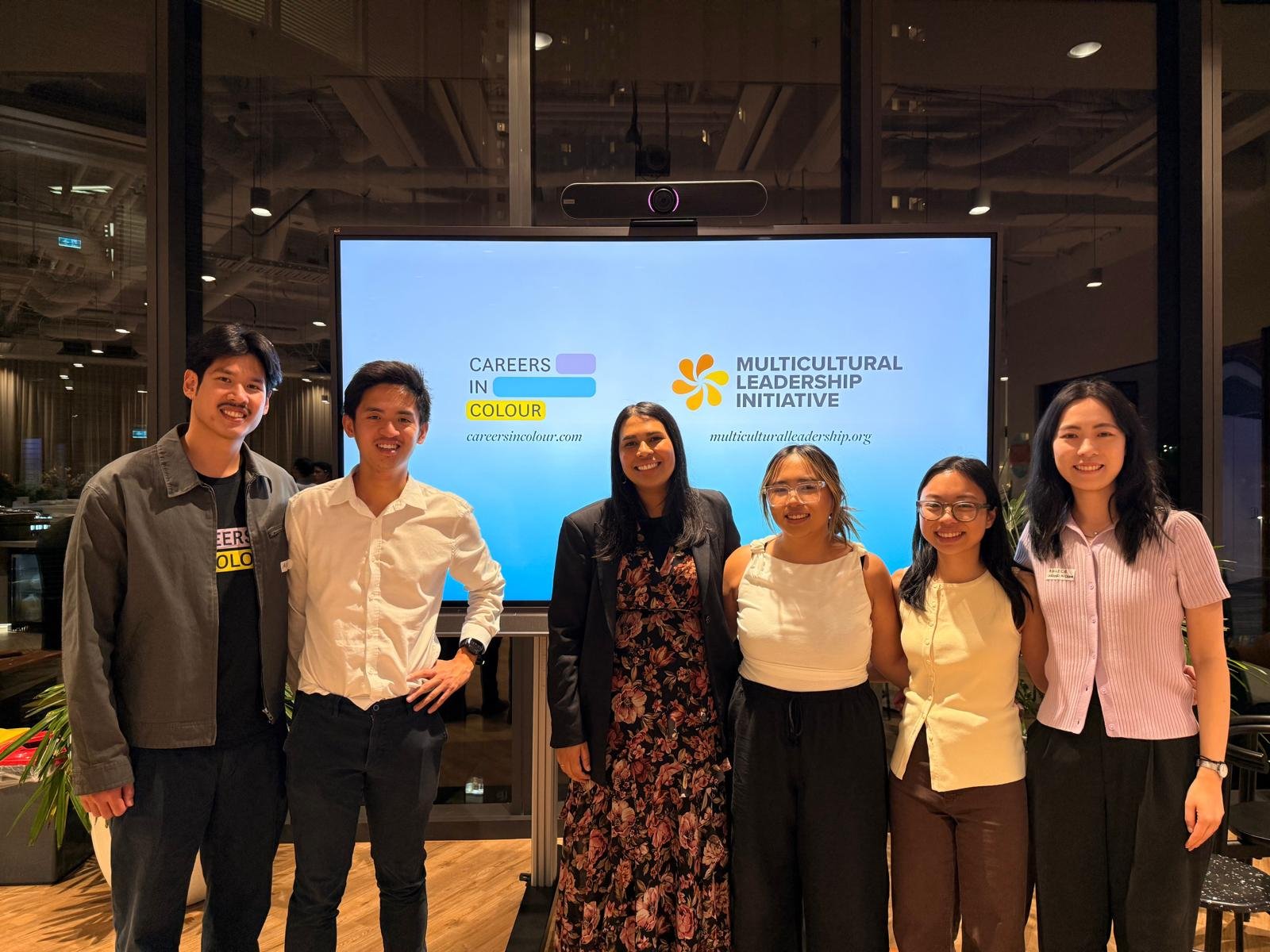Changing the Climate: Diverse Leadership for a Just Transition
By Afeeya Akhand, Head of Research and Policy, Careers in Colour
On Friday 10 October, Careers in Colour (CiC) co-hosted its final in-person event for 2025, “Changing the Climate: Diverse Leadership for a Just Transition” in partnership with the Multicultural Leadership Initiative (MLI) in Sydney.
The following speakers and panellists shared their insights on the night:
Alopi Latukefu (he/him): then-Director of the Global Centre for Social Justice and Advocacy Leadership at the Edmund Rice Centre for Justice and Community Education
Afeeya Akhand (she/her): Head of Research and Policy at CiC
Danielle Haj-Moussa (she/her): Investment Manager at Main Sequence Ventures
Dr Kim Loo (she/her): General Practitioner, Board Member of Doctors for the Environment Australia and Chair of Asian Australians for Climate Solutions
Caroline Wang (she/her): China Analyst at Climate Energy Finance
Dr Yolanda Waters (she/her): CEO of Divers for Climate and Director of Research and Education at MLI
The event underscored that climate action in Australia must integrate the perspectives and leadership of multicultural and First Nations communities it seeks to serve. The future prosperity of the climate movement lies not just in innovative technologies, monetary investments or government policies, but through centring lived experience, cultural knowledge and shared values.
Some of the key insights from the night are outlined below:
1. Lived experience drives climate action
Many speakers and panellists stressed the fact that direct experience has shaped their respective understandings of climate change. Rather than being an abstract or distant concept, climate impacts are deeply tied to everyday life especially for multicultural communities. For example, Dr Waters spoke about her work in the Great Barrier Reef as a marine social scientist, where she has firsthand experience of observing climate impacts including coral bleaching. Furthermore, Danielle shared her experience growing up in Southwest Sydney, which is several degrees hotter than the Sydney CBD due to the combined impacts of climate change and poor urban planning. Related insights about the impact of poor urban planning have also been discussed at previous MLI events including with respect to bus stop infrastructure. Often, public transport users in Western Sydney versus the CBD experience a higher rate of heat stress when waiting for buses since many suburban bus stops lack a shelter or roof.
2. Climate change is not just an environmental issue but also a societal one
Speakers and panellists spoke of climate change’s whole-of-system impacts aside from its direct environmental effects. Drawing on 36 years of experience as a doctor in Western Sydney, Dr Loo outlined the health implications of climate change including increased rates of chronic diseases such as asthma. Danielle highlighted the under-recognised nexus between climate change and colonialism, noting that due to the extractive practices of imperial powers, the Middle East is now posed to become one of the most uninhabitable places in the world through its high climate vulnerability.
3. Multicultural leadership in the climate space is a must
Increasing racial, cultural and linguistic diversity in Australia’s climate movement is needed in order to overcome the dominance of white, neo-colonial and Western perspectives. Sharing her experience engaging with mainstream climate groups, Dr Waters highlighted that often she has been the only person of colour in the room. Such groups need to be better at engaging with multicultural and First Nations communities to increase the effectiveness of climate messaging. Having said this, ‘Alopi reiterated that a partnership model is needed to ensure that multicultural communities are not merely consulted in an extractive way.
4. Australia needs to engage with regional partners on climate action
As noted by Caroline, climate change is a challenge that cannot be addressed by any one country alone but requires international cooperation. If successful in its co-hosting bid, the UN’s COP31 in 2026 would be an ideal opportunity for Australia to discuss and address climate change with the Pacific and other neighbouring countries. Beyond COP31, partnerships with regional counterparts is a must for Australia to overcome its limited capacity to fund and innovate in climate solutions. Despite geopolitical tensions, Caroline stressed the importance of cooperating with China as the world’s largest emitter of carbon dioxide emissions but also the biggest producer of renewable energy.
The speakers and panellists also provided tangible steps for multicultural Australians to increasingly become involved in the climate movement on a day-to-day basis through the following recommendations:
Spread the word about climate impacts in your local multicultural community by leveraging your lived, intercultural and multilingual skills. Since mainstream climate messaging relating to narratives of fear or urgency may not necessarily resonate with your community, other methods of effective engagement need to be implemented. For example, as highlighted through Dr Loo’s experience with elderly migrant communities, the impact of climate change on food security is one powerful way to connect due to the salient role that food plays in many cultures.
Improve your skills as a multicultural climate leader. There are a range of climate programs and initiatives out there aimed at improving the ability of multicultural Australians to adopt a leadership role in the climate movement, such as those offered by MLI.
Get involved with mainstream climate organisations to bring a multicultural perspective. Aside from being involved in your local multicultural community and multicultural climate organisations such as Asian Australians for Climate Solutions, the mainstream climate movement needs to better integrate the perspective of multicultural Australians. Ensuring that multicultural Australians are involved in such groups will improve the effectiveness of climate outcomes as this is a whole-of-society issue.

